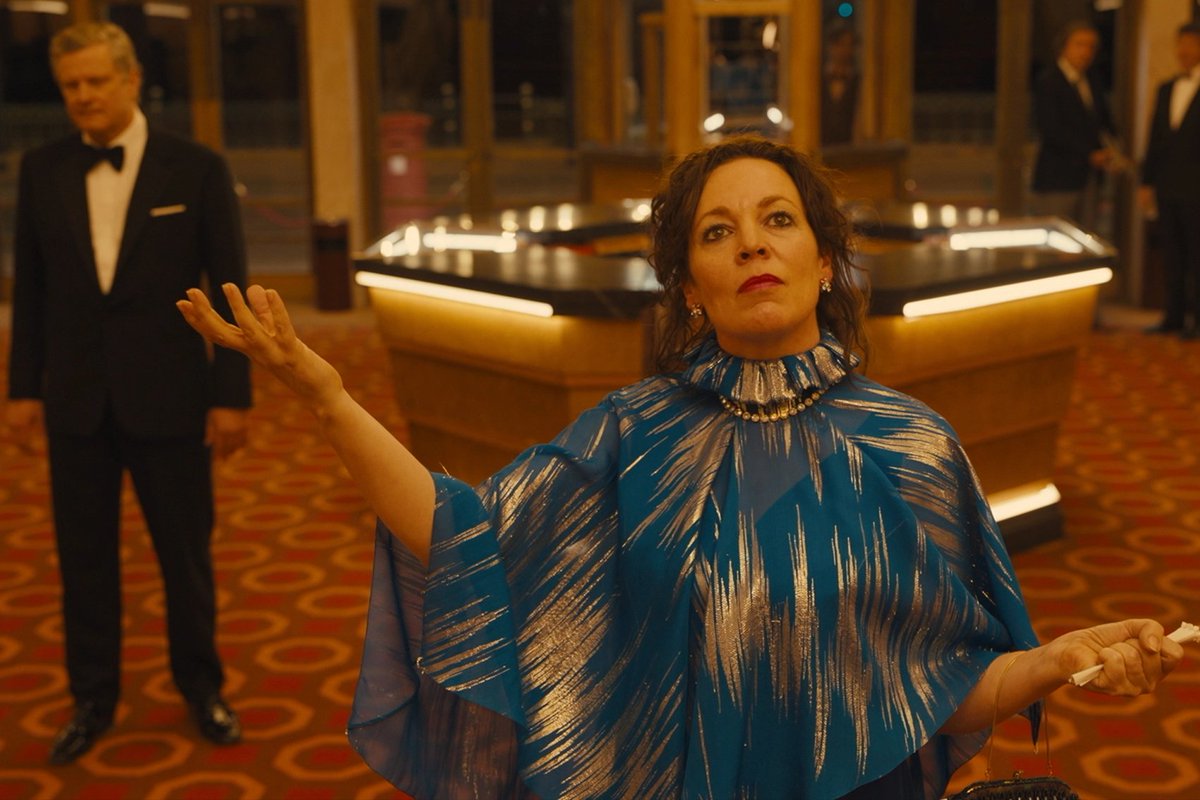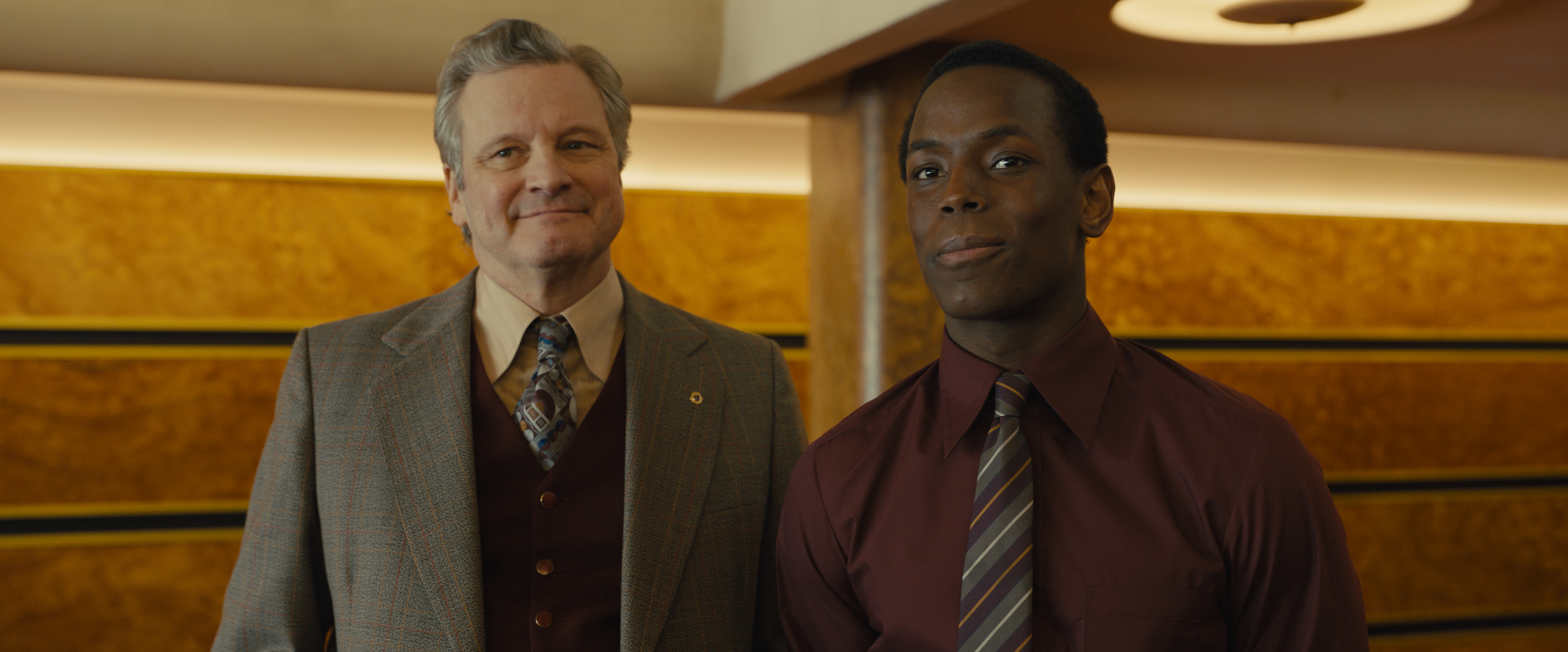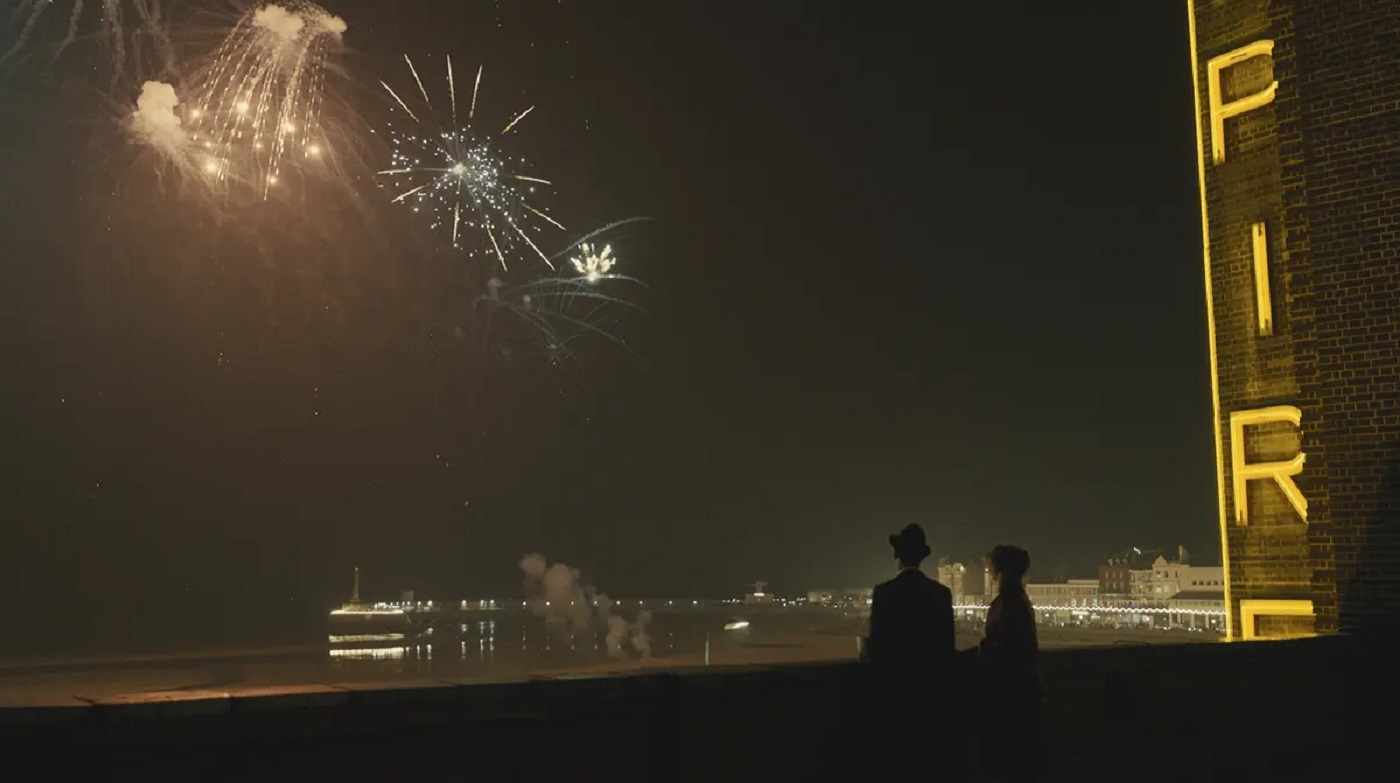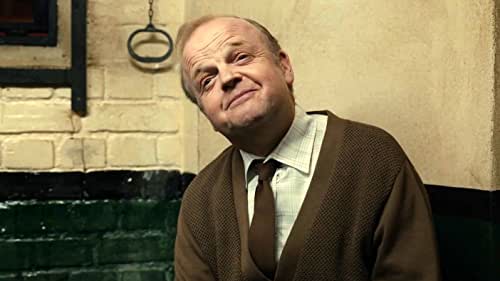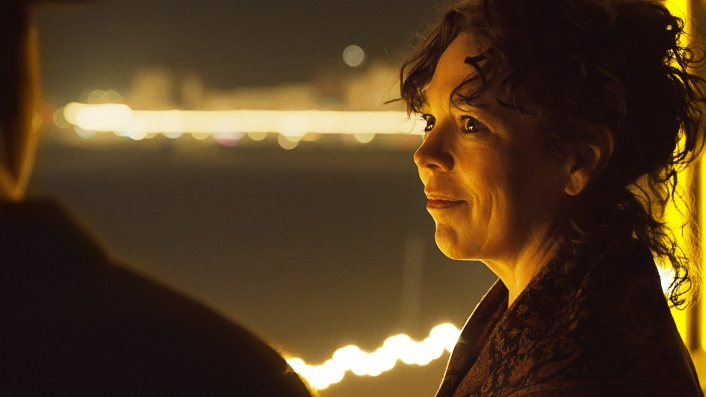KV: There are many excellent examples of films which could be properly described as a “love letter to cinema.” The Artist (2011), Cinema Paradiso (1988), Hail, Caesar! (2016), and 8 ½ (1963) (to name just a few) are films about films, which all tangle to varying degrees with the ridiculousness, tenderness, pain, heartbreak, and love of cinema. Sam Mendes‘ Empire of Light (2022), which has also been billed as such a movie, is less a love letter to cinema than it is a pinterest board about various things including cinema. Any message the film is attempting to convey about the transformative power of movies becomes garbled in the din of competing messages about racism, white supremacy, sexism, aging, the healing power of love, mental illness, poetry, music, Thatcherism, and general Britishness. While it’s certainly watchable and includes some good performances, in its overambition it fails to give any of these themes their due, and left me wondering what the point of it was. Zoe, would you care to set the scene for us?
ZA: So, timestamp 1980, in a small coastal town in England, Hilary (Olivia Colman) is an isolated woman, living with and being treated for severe mental illness and working as the duty manager at the town cinema. Depending on perspective, she is having an affair/being sexually exploited by her boss, Donald Ellis (played by Colin Firth – watching CF play a lecherous man being denied a gobby is something I didn’t think I would ever see on screen), and has pleasant albeit distant relationships with her other 80s stereotype coworkers (you better believe there’s a Flock of Seagulls-esque hairdo going on). Stephen (Michael Ward) is a handsome young Black man who, missing out on a position at university, joins the team at the cinema. Through the potent combination of creating a sling for a pigeon out of a sock together, and going to a carnival with the only other female employee at the cinema (who is also trying to tune him), Hilary and Stephen develop an intimate relationship, whilst racial tensions in the town rise, and Hilary’s mental health declines.
In between this, just in case discussions of racism and women’s mental health and its treatment in the 80’s wasn’t enough for you, this film is ACTUALLY about cinema and the transportive nature of the art form (haven’t you read the movie poster?). There are scenes, interspersed between beatings and breakdowns, of the technical beauty of projecting film and the emotional force of film — which were nice, if somewhat shoehorned in.
Katie, this film truly is a thematic beast of little depth. Let’s hear your thoughts.
KV: One of the biggest issues I had with this film was the inconsistency in its understanding of power dynamics in interpersonal and sexual relationships. Almost immediately, the viewer understands that the sexual relationship between the characters played by Colman and Firth is disturbingly exploitative. He is her employer and while she initially seems somewhat flattered by his interest in her, each of their encounters is sexually coercive and dehumanising. Yet the same critical lens is not applied at any point to the central relationship of the movie between Hilary and Stephen.
Professionally, Hilary is in a position of power over him as his supervisor, as well as being significantly older than him and white. Shortly before their first kiss, Hilary screams at him for making a mistake with ticket stubs and mocking a customer, but the viewer is given to understand that her outburst is to some extent due to her jealousy about his growing friendship with the only other female employee of the cinema. That same night, after he has gone to a party with the female colleague and her friends, he returns to the cinema to join Hilary on the roof and watch New Year’s fireworks and she initiates a kiss with him. There is no suggestion that the kiss or the relationship that grows from it is unwelcome on Stephen’s part, but it seemed an odd oversight given the nuance with which the power imbalance in the Colman/Firth relationship was portrayed.
ZA: Completely agree, and even the scope of the commentary on the Ellis/Hilary relationship was alarmingly limited and unnuanced — which is pretty on brand for the film in general actually. The way the racism is depicted is almost exclusively limited to the skinhead population of the town, bar one uncomfortable sequence where a man angrily eats some chippies at Stephen at the cinema as a display of contempt and dominance. At this point Hilary has to be led to even consider that Stephen’s race could factor in this aggression, of which she and every other cinema employee seems to be oblivious.
This strange “I-don’t-see-race” attitude is most on display during a skinhead motorbike rally (this small seaside town seems to be about 50% skinheads at this point — unless it was some touring white supremacist convoy?). The cinema employees don’t think twice about Stephen going to lock the very glass doors in full view of the gang. Perhaps the exponential growth of skinheads in the community is a representation of the rise of racism and xenophobia in Thatcher’s England, however therein lies the issue. To suggest racism is relegated to the extreme and obvious iterations of it denies the pervasive and ubiquitous nature of it, and absolves those who are not on those fringes of interrogating or even acknowledging their own racism. There is no depiction of the power dynamic between Hilary and Stephen, both in the structures of their workplace and those inherent to being a white woman and a young Black man in England. There is even a scene where Stephen escapes the seaside skinhead gang (at this point earlier in the movie, only three strong) into the safety of the presence of three white policemen (if we weren’t in the Mendesverse, I would wager that could be a classic “out of the frying pan, into the fire” type situation).
KV: I think what Mendes was going for was a story where two very different people who are subject to different systems of oppression are able to find each other and be healed through their love. His execution, though, speaks to a fundamental misunderstanding of the intersectionality of oppression, and a failure to recognise that imbalanced power relationships can still exist between oppressed people. Mendes’ lack of interest in anything but the clunkiest exploration of racial dynamics and racism is borne out in the arc of the relationship between Stephen and Hilary. Stephen is essentially there for Hilary to feel nurtured for once, to go on a journey of sexual discovery, to learn that OTHER white people are actually racist, and to find out what “rude boy” means. He in turn gets from their relationship … some encouragement to apply for university (which he is already doing) and a visit to the hospital following a brutally violent skinhead attack on him (but only after she hasn’t been to see him for several weeks, which he is for some reason not mad about). Some of this might be forgiven if there were more chemistry between the two, but in spite of both of them acting the crap out of it, the dialogue never really allows the pair to depart from what feels like a genuinely affectionate but pretty asexual (except when they’re actually having sex) relationship between two coworkers.
ZA: And we haven’t even gotten to the love letter to cinema stuff! This film had so much going on, everything became so convoluted and consequently the potential impact of each facet of the film dilutes them all. Honestly, if I received a love letter like this (that’s right, folks, I’m single), I would just be like, “Do you even like me? You seem to have a lot on your plate right now.” The heart of the love letter element is spearheaded by the projectionist (played by Toby Jones, who you would have seen in many many films and not be able to place him in a single one despite his incredibly distinctive face). The projection room is plastered with cutouts of movie stars and a single picture of the projectionist’s son, whom he abandoned many years ago and had forgotten the reason why. Yes, that is another subplot just in case there wasn’t enough crammed into this already. Rather than the film’s mission statement, these fleeting moments of lyrical reverence of cinema seem out of place, and at best, one of the many parts of an overcrowded film.
KV: There are some weird bits that didn’t seem to add anything to the narrative as well. A recurrent subplot is that it seems as though Hilary, who works at a cinema, has never seen a movie. I think they couldn’t say that explicitly because it would have been too funny, but it takes a lot of encouragement from Stephen to get her to sit her ass down in the theatre and actually watch a film, at which point she has a Julia-Roberts-seeing-opera-for-the-first-time-in-Pretty Woman moment and starts sobbing with joy, but like … why had she never seen a movie? How long can it really take to do whatever you need to do with the ticket stubs? You couldn’t just pop in once you’re done? Also, why is she always reading poetry? Many questions remain.
ZA: Yes, Colman’s character really is a strange amalgamation of many parts, much like this movie really. There is a strong throughline of hatred of men that erupts during her more agitated and manic moments, which are never really expanded upon beyond that. Irrespective, her performance is impactful, honest and brutal at times. Even if the writing limits the scope of the character, Colman wrings it dry. Unfortunately, I don’t necessarily think the other actors are as capable as she is, leading them to suffer the limitations of the writing more, rendering their characters somewhat two dimensional and unbelievable.
KV: Yeah, all this being said, there were genuinely touching and beautiful moments. As always, Colman is an absolute QUEEN and gives a very moving portrayal of a lonely woman trying to navigate her way through the management of what appears to be a recently diagnosed severe mental illness. Ward’s performance is charming and at times heartbreaking, and most of the relationships between the cinema employees are very sweet (except when it comes to Colin Firth, who we hate).
ZA: Yeah, look, not a total stinker by any measure. Mendes is a skillful filmmaker (when the writing is left to someone else) and there are some lovely elements going on. However, this film is bursting at the seams with ideas, with none of them being fleshed out or particularly novel. It suffers from ambitious scope meeting a meandering and muddled execution.
Empire of Light is currently playing in cinemas.
